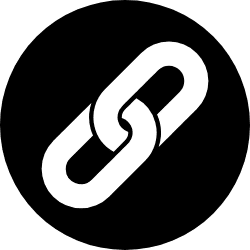

 © Guido van Nispen
© Guido van Nispen
Julia Janssen
Julia Janssen is a design researcher, specialized in investigating the impact of technology on society.
Categories
About Julia Janssen
Abstract
Julia Janssen is a design researcher, specialized in investigating the impact of technology on society: the changing definition of privacy, the importance of property rights for personal data, the monetary value of online behaviour and the future of our (digital) identity. In addition to a critical attitude towards tech giants, Janssen emphasises the value of sharing more accurate data for the benefit of the individual and collective quality of life.
In her projects and presentations she translates studies and ideas into accessible, visual expressions. In this way she provides insight into the world that takes place behind the surface of the internet and she creates innovative perspectives on the future of the data economy.
The purpose of her presentations is to motivate and inspire new systems and applications to ensure a safe and honest data-driven future.
Topics
Julia Janssen works from Studio Julia Janssen, an independent design studio in Design Research. From this studio she works on research projects on property rights of personal data. This manifests itself in several themes: the monetary value of online information (e.g. advertising models, freemium service and content creation), privacy conditions (Trusted Third Party Hosting Networks, GPDR), physical and digital identity and possible methods to give the products of data control over its data in the future.
During her research, she collaborates and/or speaks with various experts in the fields of information law, cyber security, software development, data journalism, data science, financial and political economics, behavioural science, innovation, consultancy and philosophy. Through these interdisciplinary activities and exceptional collaborations, Janssen shows the added value of artists and designers in a scientific, economic or political context and hopes to stimulate more collaborations.
Background
Janssen graduated as a graphic designer from the ArtEZ College of the Arts in Arnhem (2012-2016). During her studies, she noticed a growing interest in social and political engagement and in researching the content as well as the aesthetics. For her, design became a tool to illuminate current developments from a critical perspective and to expose complex, inaccessible mechanisms.
Janssen first came into contact with data during her graduation project. She researched the monetary value of personal data in relation to a Basic Income, and visualized this in an installation called ‘Bank of Online Humanity’. The message of this work was “We suffer from data slavery”. With this project she won the Crypto Design Award in 2016. A decisive moment in her career, which made her practice as a designer decide to dedicate it to this statement. Since then, she has been working on the development of innovative concepts in the run-up to a data-driven society.
In 2017 she received a grant for Talent Development from the Stimuleringsfonds Creative Industrie and a grant for Innovation from the SIDN fund. With this financial support she worked for 16 months on the installation called The Attention Fair. An installation consisting of twelve games, visualizations and experiments to give her audience insight into the complex world of the data economy.
The speaker
Julia Janssen has no academic background as a privacy lawyer, economist, or data scientist. This is what makes her position unique. She has an intrinsic motivation to acquire knowledge on data and technology. Because of her background as a graphic designer, she can process this information into visualizations, experiments and games in order to make complex matter accessible to a large audience.
Her projects usually consist of several layers. Depending on the viewer’s knowledge, the deeper layers become visible. Experience shows that her installations and presentations for the ‘layman’ are experienced as an eye opener and by the ‘professional’ as an innovative perspective or accurate reflection.
Despite the fact that a large part of her research focuses on the bottlenecks of the current data landscape, she has a very positive outlook for a data-driven society. She calls herself a critical tech-optimist. Julia Janssen was born in 1994 and grew up with the internet. In her youth she saw the introduction of the smartphone, wifi, social media, online communication and the growth of online shopping. This gives her a different understanding of technology and a fresh perspective on the role of these services in our lives.
Janssen does not claim to be the expert on these individual domains. She studies current developments and collects knowledge from disciplines that touch on the theme of data in order to improve her performance.
